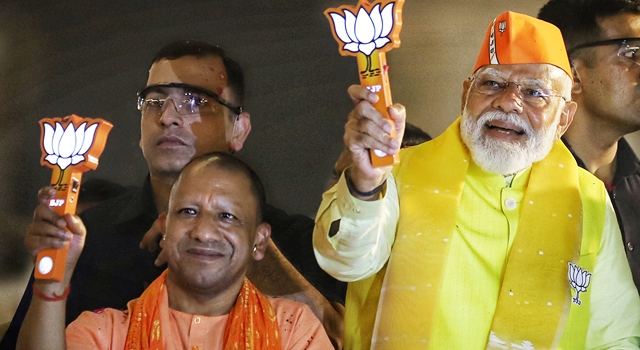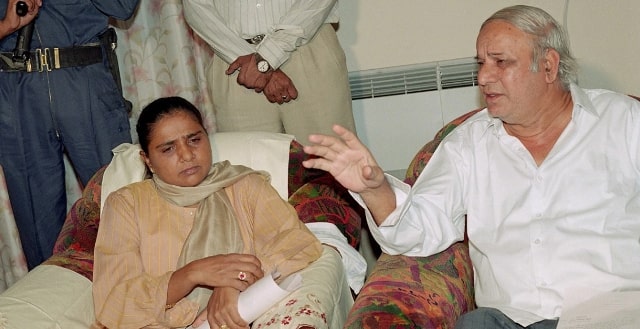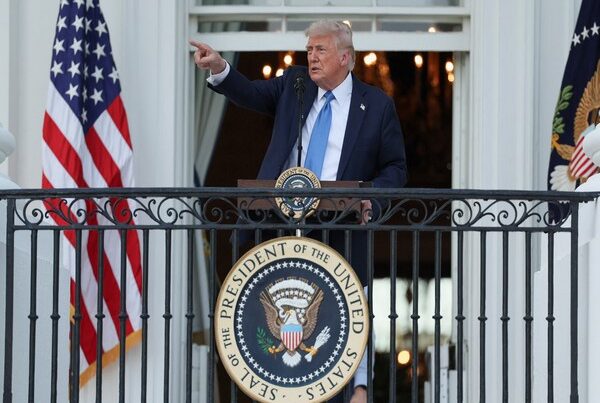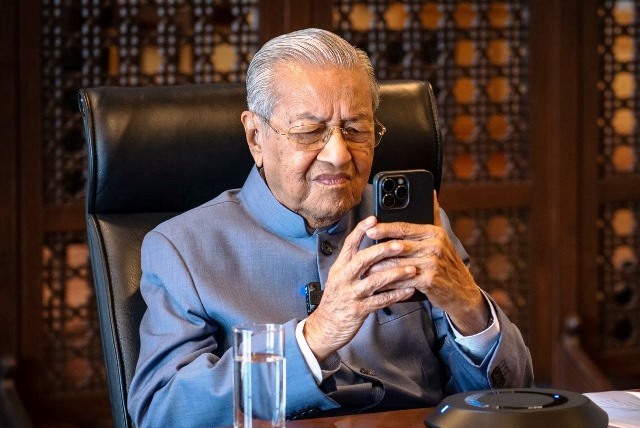
How Lok Sabha Elections 2024 Became a Referendum on Indian Constitution – I
Amid an election that seemed highly dull, unprecedently non-polarised and sundry, the interiors of central Uttar Pradesh had reached the boiling point after two phases of polling. It was not an easy task to assess this heat from outside. The drama that unfolded in front of this reporter in the Jajpur village of district Sitapur is representative of the shifting political paradigm in the land that has been the fortress of the Bharatiya Janata Party (BJP) since 2014.
Making of an Argument
We entered the village from the southern entry point which usually inhabits lower castes in the rural geography of UP. Here it was the Pasi community. It is considered as the core voter of the BJP. Strolling in the narrow bylanes destroyed by the yet-to-start Jal Jeevan mission pipeline project, we were accompanied by a group of women and children. We reached an open space near a handpump and sat there for a chat. There were a couple of youths and some elderly people from the same community. They joined in. Within a few minutes, a bike appeared from nowhere and stopped abruptly. Seeing him, women flung to one corner of the street and the elders too became uneasy. Someone whispered. “Aa gaye pandit mahaul kharab karne” (Here comes the Brahmin to spoil the atmosphere)!
The bare-bodied man riding the bike was a Brahmin in his fifties. He enquired about us. After we briefly introduced ourselves, he started talking about himself very loudly that he had come to the village for his daughter who was going to sit for the NEET exams. He boasted of living in Delhi for many years. He had built a house in Lucknow and came to the village only when it was urgent. He advised us not to talk to ‘these’ people as they speak ill about the government despite enjoying free ration and amenities. After a long silence from the Pasi side, suddenly a dissenting voice came from a youth.
He commented, “True, last time he came to distribute Ram Mandir invitations. Now he is here for his daughter’s exam. Let the paper get leaked, then he would know for once and always why we speak ill of the government”. Within seconds of this reaction, the Brahmin started abusing them and people rose against him. The conversation had got ugly and now we realised that this man on the bike was drunk. We remained mute spectators until he fled with speaking of the ‘consequences’.
It was the most unexpected real-life dramatics, but the argument put forward by the youth had caught our ears. He said to the Brahmin, “Tum log abhi mansik gulami kar rahe ho. Jis din samvidhan padh loge gulami ko tod doge. Tumhari galti nahin hai” (You are mental slaves. Once you read the Constitution, you will break away. It is not your fault). Later he told us that he has been a victim of the paper leak twice and works at a computer shop in the nearby market.
A couple of days later NEET paper got leaked out. We were still in UP. Nothing could be said about the Brahmin of Jajpur or that youth but the narrative evolved around paper leaks in UP’s villages is a readymade takeaway for anyone interested in decoding the reasons behind the uproar over “Save the Constitution” in these elections.
Quoting the words of that Jajpur youth, “This government wants us to keep begging for five-kilogram ration. That is why it deliberately leaks exam papers. So that no one gets the job and the government gets bailed out of the obligation of giving reservations. The paper leak is directly linked with the BJP’s intent of ending the reservation guaranteed by the Constitution”.
Constitution as an Electoral Issue
Those who have not been to the field will never know that this General Election was being fought on the issue of saving the Constitution from the very first day and even much before that. It seems strikingly vague and has never been a part of our collective experience that elections are fought over the issue of a Constitution in any democratic Republic. In fact, the Constitution was not an explicit issue even in the LOk Sabha elections held just after the Emergency imposed by Indira Gandhi. It was the authoritarian character of the leader and state repression in question.
How and when did the Constitution become an electoral issue? Is it just due to statements from a few BJP leaders about changing the Constitution and ending reservations, as D. Raja claims in his article published after two phases of polls? Karnataka’s Anant Hegde was the very first leader who spoke of ending the Constitution in the run-up to elections. He was mysteriously denied a ticket and the party distanced itself from his statement. But after him, there have appeared around half a dozen similar statements, from BJP’s Meerut candidate Arun Govil to Ayodhya candidate Lallu Singh, Diya Kumari, Jyoti Mirdha and the newest turncoat Pramod Krishnam.

Was the BJP aware of ground swell on the Constitution? In all these cases, it seems as if the BJP never tried to reign in its leaders. And actions attract consequences, especially when it is election time. Lallu Singh was seen pleading to the voters that the video of his viral statement was fabricated and fake. Anant Hegde had to retract.
Talking to hundreds of people in more than a dozen Lok Sabha Constituencies of UP across various caste compositions reveals that the reservation guaranteed by the Constitution is just one strand of the larger fear. Also, people did not mention any specific leader while expressing their fear. They have their reasons to save the Constitution. Some arguments are beyond our comprehension.
To cite a few, one upper-caste lady was fearful of BJP again coming to power because she would lose her right to report FIR after being beaten by her inebriated husband; a young OBC girl said she would lose her right to walk and work freely; a daily wager in his forties was of the apprehension that ending the Constitution would mean an end to the rural employment guarantee act MNREGA.
Mahesh Yadav, a core voter of the Samajwadi Party from Lucknow says, “This time BJP will end elections if it returns. This is the last opportunity for us to save everything”. This fear was echoed in the Loksabha constituencies from Fatehpur Sikri to Lakhimpur Kheri i.e. the complete stretch comprising Bundelkhand and Central UP districts where BJP had secured 26 out of 28 seats in GE 2019.
The Barometer
When does an issue become an electoral issue? When it overarches other issues and breaks traditional loyalties towards political parties. If things have allegedly boiled down to the Constitution, the obvious barometer lies at the two opposing ends: first, with the Bahujan Samaj Party (BSP) cadre that has been politically trained by taking the oath to the Indian Constitution and the other, the RSS cadre that has historically never accepted the Republic and its Constitution, as it is.
The litmus test of the Constitution as an electoral issue passed at both sites. It may be unacceptable or indigestible for someone to vouch for the RSS cadre breaking its loyalty with the BJP, but then read the recent statement of BJP President JP Nadda that says, “We have grown, more capable now… the BJP runs itself”. Before coming to the RSS, let us look into the “Mission Villages” of UP.
Kanshiram, the stalwart of contemporary Dalit politics in India had adopted hundreds of villages and transformed them for the cause of Ambedkarite thought and emancipation. These “mission villages” still exist, mostly with a Bauddha Vihar and idols of Kanshiram and Ambedkar. These villages voted en mass for BSP but they had decided to vote for the SP-Congress alliance in this election. Why?

An octogenarian Ambedkarite from Mohanlalganj constituency Sunderlal Bharti aka ‘Netaji’ says, “We know that Behenji has nothing to do with these elections except retaining her votes. We will see her in 2027 assembly elections. This time we vote for the constitution. Every BSP cadre understands this much politics”.
His village Kevalpur resounds. Be it Pasi, Raidasi or other sub-castes of Dalits, they were seen inclined towards the alliance, not BSP. Even some Jatav voters were talking of voting for the alliance to save the Constitution.
A close confidant of Mayawati confirms this when he says, “That is why Akash Anand was dumped in the mid-course. He was disturbing and confusing our voters with his fiery speeches. We are just eying 19% of our traditional vote share, no seat this time. Our real battle is in 2027 when SP will get decimated and we will be in direct contest with the BJP”.
Akash Anand, the young face of BSP 2.0 launched his electoral campaign from the Nagina constituency of UP in April first week and immediately caught the eye of the storm when he was booked for a speech in Sitapur. After that FIR he was asked to sit back. Mayawati publicly said that he was still ‘immature’. Media had then speculated that BSP voters would get disillusioned by this action and vote for the BJP.
On the contrary, Bharti says, “It was a good decision. Anyways we knew where to vote. Behenji knows tactics”. And then he asks, “Aap tactics jaante hain?” Tactical voting has been the feature of BSP politics since its inception.
This is also true of the RSS, the parent body of the BJP. RSS has been working for the BJP for such a long time that the opposition, especially Rahul Gandhi equates both in his speeches. But it is not reflected in RSS cadres’ conversations, nor do voters on the ground talk synonymously of both. And theoretically too, RSS does not always work for the BJP. This time the difference is stark
Manoj Gupta, an ex-president of BJP and four-decades-old RSS cadre from Bundelkhand said, “In the SP government we had ample space to fight for our cause. We protested and even forced the administration to nab corrupt SP leaders who were later sent to jail. In the BJP regime, we find the space of dissent shrinking”.
It was an unusual statement from a BJP functionary. He kept on talking about the illegal mining and timber trade in Bundelkhand. He was angry with the local BJP MP and MLA’s. In the last ten years of BJP regime, he complained that nothing had changed but the right to dissent was under direct attack.
The same complaint was voiced by the upper-caste RSS cadre from Etawah who teaches at a college, “I tried to bring in some academic changes; secured a research project for the college, organised a national level seminar. Immediately I became a thorn in the powers be. They were corrupt leaders. I complained to the local MP. Nothing happened. Finally, I manoeuvred and now things are smooth. I have shut up my mouth”.
What about the vote? Gupta, sitting in his one-bedroom house said, “This is the last time. Just for the nation. No more after this. 2027 will see a revolt”. Others half a dozen men accompanying us on evening tea and each one affiliated with the RSS opined that they were now exhausted with the internal corruption of Sangh and BJP. The city in charge of the organisation said, “No space for good and committed people left here. We are not going to campaign this time. Will decide on the voting day what to do”.
Constitution never came literally in these conversations but the shrinking space for dissent and protest was significant. And this is throughout UP. Some caste considerations are also playing a role in this dissatisfaction. A senior journalist said, “Most of the BJP and RSS functionaries are from the same caste as the Chief Minister. This has made committed RSS workers hostile”. BSP has played upon this dissatisfaction by fielding Brahmin candidates on those seats where RSS has gone cold.
An old RSS functionary from PM Modi’s constituency Varanasi revealed that it had planned to boycott the BJP in 2019. In fact, the widespread destruction caused by the Kashi Vishwanath corridor had left many old RSS functionaries disgruntled. Many had lost their homes and shops around it but the internal dissent was not enough to minimally affect the results. This time the rift has become global.
This may be the reason that Mohan Bhagwat has openly called for not celebrating 100 years of RSS in 2025. The statement came as a surprise just before the first phase because the organisation had chalked out a vast plan for centenary celebrations in March third week when the highest body Akhil Bhartiya Pratinidhi Sabha met in Nagpur. After that, the low voter turnout in successive polls indicated BJP voters’ disillusionment and an inactive RSS. Finally, JP Nadda’s statement confirmed the impending divorce between BJP and RSS, if it is to be believed.
Whatever the case, the cadre of BSP and RSS both are facing the heat of an authoritarian regime. The extent and intent may differ in both cases but this has made space for the Constitution to fill in as an overarching issue of GE 2024. But this has not happened overnight. Discourse over the Constitution started simmering in 2019 and gained momentum after the COVID-induced lockdown was lifted.
(This is the first article of a two-part series on the subject)



